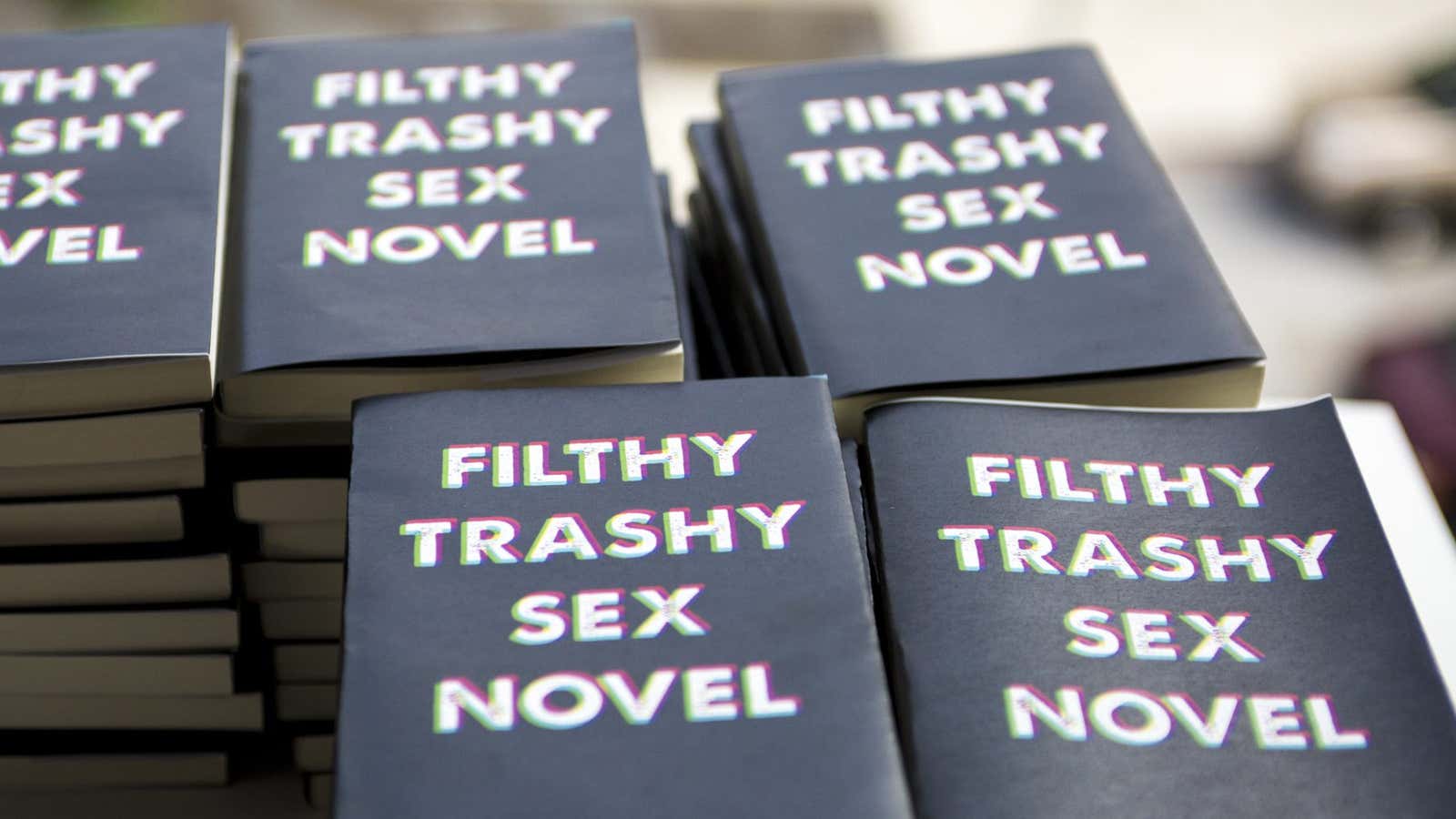Holden Caulfield is known for a lot of things—his whininess, his condemnation of phonies, his disillusionment with society at large. Now, he’ll be labeled in Washington, DC, as “anti-white”—but for a cause.
This month, the city’s public library system is hiding once controversial books around DC in a literary “scavenger hunt.” Each book has a black cover, printed with quotes from people who have tried to have them banned or removed from US libraries and schools. John Knowles’ A Separate Peace will be labeled “filthy, trashy sex novel,” and J. D. Salinger’s The Catcher in the Rye is labeled “anti-white.”
Black covers refer to a tradition of passing around controversial books with their titles and original covers hidden. The titles for this campaign were chosen to show the “amazing sense of disconnect” of the people who took issue with each book, says Linnea Hegarty, executive director of the DC Public Library Foundation. Several hundred copies will be distributed.
The label for Salinger’s classic about alienation from society comes from a 1963 challenge to the book in Columbus, Ohio. The US Office for Intellectual Freedom, which records challenges to books in the country, traces the challenge to a passage in 120 Banned Books: Censorship Histories of World Literature (2005), by Nicholas J. Karolides et al:
In 1963, a delegation of parents of high school students in Columbus, Ohio, asked the school board to ban Catcher in the Rye, Brave New World, and To Kill a Mockingbird for being “anti-white” and “obscene.” The superintendent of schools and the school board refused the request and expressed confiddence (sic) in the ability of their teachers and librarians to choose reading material for the school system.”
Though The Catcher in the Rye is frequently challenged for its swearing and attitudes toward sex and drinking, it’s not clear what in the novel would warrant this particular charge, and it’s possible that “anti-white” actually refers to Harper Lee’s To Kill a Mockingbird. Holden is a privileged white private school teen who struggles with depression and anxiety, and though he certainly doesn’t paint young white men in the best light, his antics and self-hatred hardly seem anti-white.
The DC libraries will distribute copies of five other books: Richard Wright’s Native Son is labeled “profane and sexually explicit”; Ken Kesey’s One Flew Over the Cuckoo’s Nest is “pornographic”; Kurt Vonnegut’s Slaughterhouse Five will be “just plain filthy”‘ and Alice Walker’s The Color Purple, simply, “smut.”




